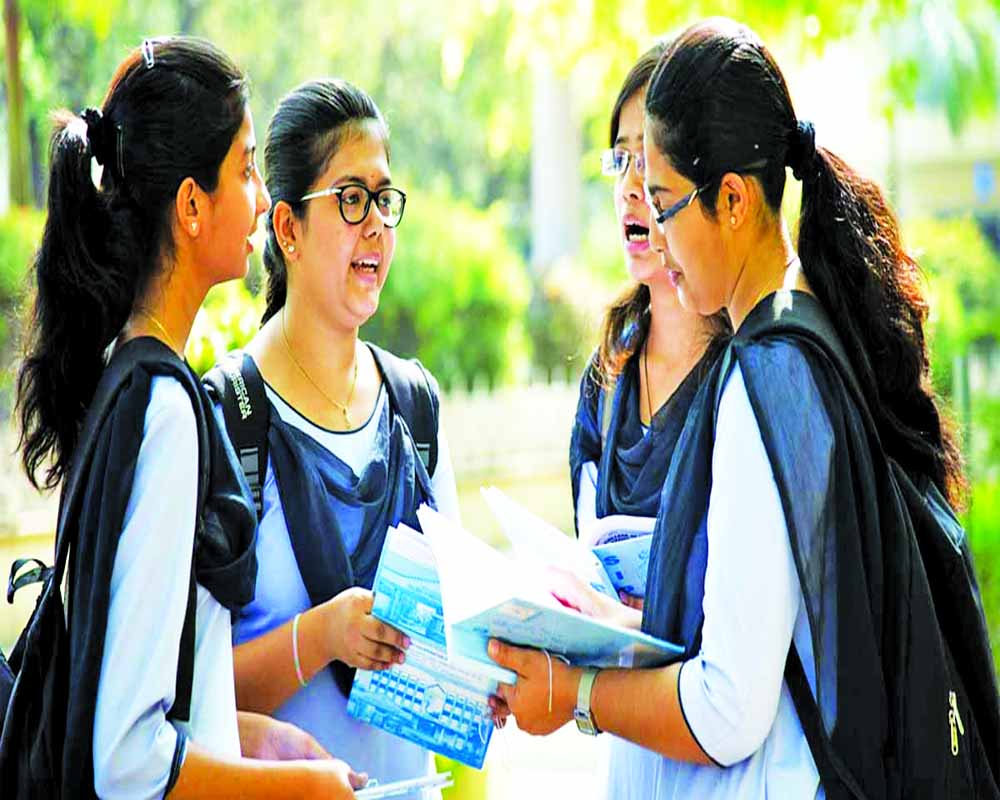It is a visionary dcoument that takes school education to the next level
The National Education Policy (NEP) 2020 lays out an educational vision with a lot of promise for the future of education in India. One of the things it suggests is a revised structure for school education in India, known as the 5+3+3+4 model. This proposed structure proposes that we replace the existing 10+2 structure that has been in place for several decades. This is in order to provide a more flexible and holistic approach to education. Let’s take a closer look at the 5+3+3+4 model, how it differs from the previous structure, and why it might be better for education in India in the future.
The 5 + 3 + 3 + 4 Model
The 5+3+3+4 model is the latest structure for school education in India that is proposed in the National Education Policy (NEP) 2020. The "5" in the model refers to the foundational stage, which includes the first five years of schooling, from ages 3 to 8. The focus at this stage is on play and activity-based learning, with an emphasis on the development of cognitive and social-emotional skills. The first "3" in the model refers to the preparatory stage, which encompasses the next three years of schooling, from ages 8 to 11. The focus at this stage is on introduction to language, mathematics, science, social studies, and the arts, with an emphasis on learning through inquiry and discovery. The next "3" in the model relates to the middle stage, which includes the next three years of schooling, from ages 11 to 14. The focus during this stage is on deepening the students' understanding of core subjects. In addition, they are encouraged to expand their learning to include additional languages, the arts, and other elective subjects. The "4" in the model refers to the secondary stage, which includes the final four years of schooling, from ages 14 to 18. The focus during this stage is on providing students with a broad-based education that prepares them for higher education, as well as for vocational or technical education, if they choose to pursue that path.
Starting with holistic and moving to specialisation
One of the main advantages of this structure is that it suggests that the educational journey starts with a more holistic or trans-disciplinary approach to learning when students are younger, and then over the years progresses to a more specialised or disciplinary approach.
A holistic/trans-disciplinary approach to early education allows for a holistic and comprehensive understanding of a subject, as it integrates multiple disciplines and perspectives. This approach is especially beneficial for young children as it helps them to make connections between different areas of knowledge and develop critical thinking skills.
Starting with Strong Foundations and moving to Better Choice
Strong foundational learning leads to a more equitable education, where all children have the opportunity to reach their full potential regardless of their background. The revised model places more emphasis on key foundational skills like literacy and numeracy. Educational research has shown us that gaps in literacy in early childhood can result in an educational ‘Matthew Effect’ of sorts. This is i.e., the high achievers get better, and the low achievers get worse over time. The NEP also emphasises the role of play and activity-based learning during the early years of schooling. Research has shown that play and activity-based learning can have a positive impact on the development of cognitive and social-emotional skills in young children. One of the main differences between the 5+3+3+4 model and the previous 10+2 structure is that the revised model focuses on providing a more flexible and holistic approach to education. The traditional 10+2 model of education often results in students being forced to make early decisions about their future careers, which can limit their options later on. The revised education policy aims to address this issue by providing more flexibility in the structure of school education. This will enable students to explore different options before making final decisions.
(The writer is School Director, The Green Acres Academy)
























